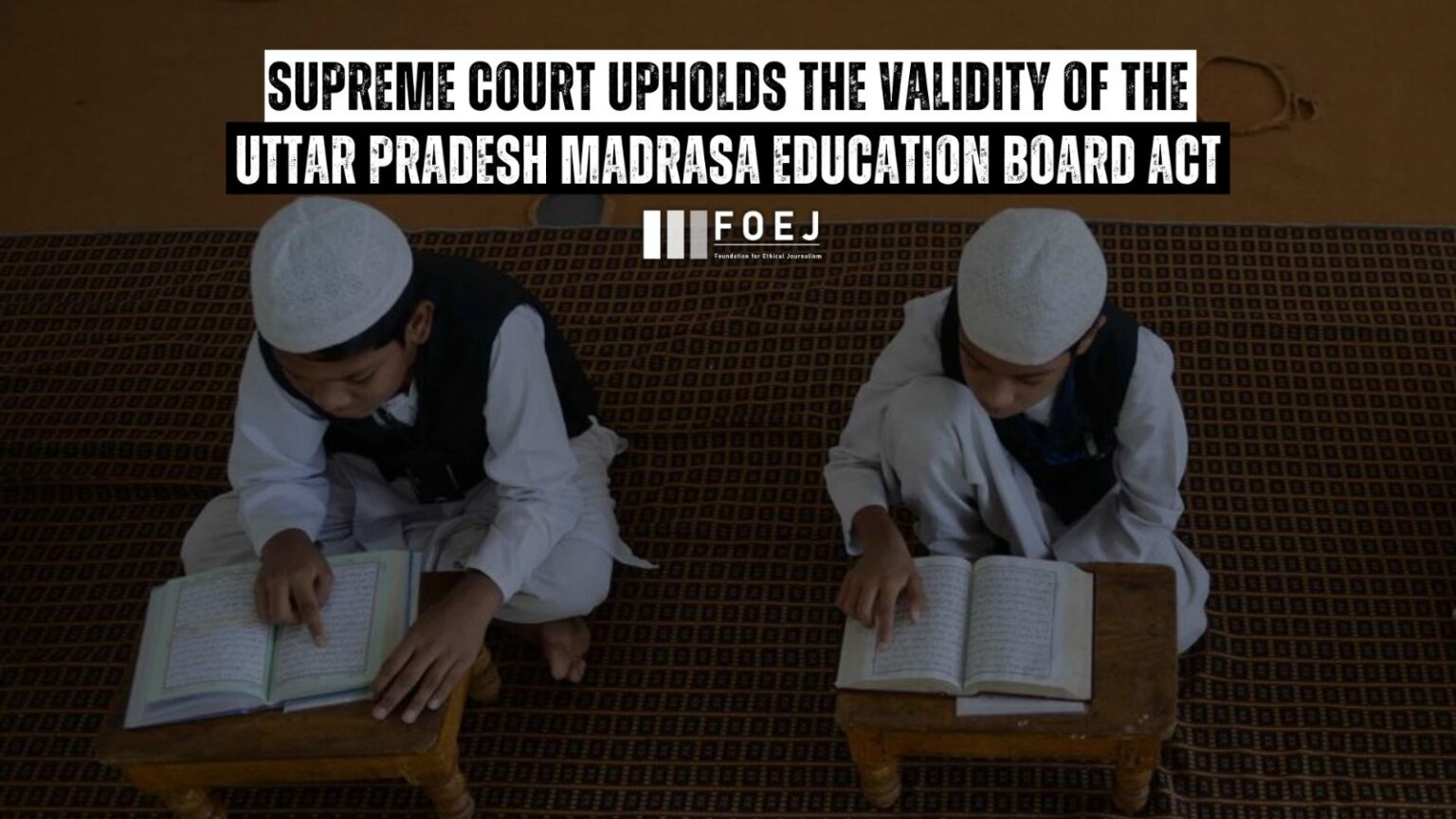The Supreme Court on Tuesday upheld the constitutional validity of the Uttar Pradesh Board of Madarsa Education Act 2004. It overturned the rulings made previously by the Allahabad High Court, which had deemed it “unconstitutional”.
In its ruling on the Act, the court acknowledged that certain provisions concerning higher education degrees, particularly the ‘fazil’ and ‘kamil’ degrees, were in violation of the University Grants Commission (UGC) Act. As a result, the court declared these provisions “unconstitutional.”
“The Madrasa Act regulates the standard of education in Madarsa as recognised by the Board for imparting Madarsa education….is consistent with the positive obligation of the state to ensure that students studying and recognised Madrasas attain a level of competency which will allow them to effectively participate in society and earn a living” and “Article 21A (of the Constitution) and the Right to Education (RTE) Act have to be read consistently with the right of religious and linguistic minorities to establish and administer education institutions of their choice,” the CJI said
The bench also comprising Justices J B Pardiwala and Manoj Misra said while “the Madrasa Act is within the legislative competence of the state legislature”, the Act “to the extent to which it seeks to regulate higher education, including the degrees of Fazil and Kamil is beyond the legislative competence of the state legislature since it conflicts with section 22 of the University Grants Commission Act…The UGC act governs the standards for higher education, and the state legislation cannot seek to regulate higher education in contravention of the provision of the UGC Act.”
The Background of the Case
The Supreme Court’s ruling responds to a petition challenging the Allahabad High Court’s judgment delivered on March 22, which struck down the UP Madarsa Education Act on the grounds that it violated the principle of secularism. The High Court also directed the Uttar Pradesh government to develop a scheme for integrating madrasa students into the formal education system, citing concerns over the quality of education offered in these institutions.
The case was brought by several petitioners, including the Managers Association Madaris Arabia and the All India Teachers Association Madaris Arabiya. The High Court had misinterpreted the Act as primarily aimed at religious instruction rather than as a framework for the education of Muslim children.
Allahabad High Court’s Ruling
The Lucknow bench of the Allahabad High Court on March 22, 2024 declared the Uttar Pradesh Board of Madrasa Education Act 2004 unconstitutional on the ground that it violates the principle of secularism.
The bench in its decision, recognised the Act as ultra vires and ordered the Uttar Pradesh government to develop a framework to integrate students currently enrolled in madrasas into the mainstream education system.
The ruling came after a series of steps taken by the Uttar Pradesh government, including the launch of a survey of Islamic educational institutions in the state. In October 2023, the government also set up a Special Investigation Team to probe the financial sources of madrasas, particularly focusing on funds received from abroad.
The High Court’s ruling stemmed from a writ petition filed by Anshuman Singh Rathore, who challenged the constitutional validity of the Uttar Pradesh Madarsa Board. The petition also raised concerns about the management of madrasas by the Minority Welfare Department, both at the state and national levels, along with several other related issues.







